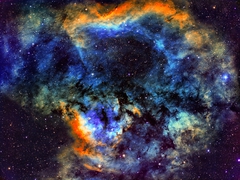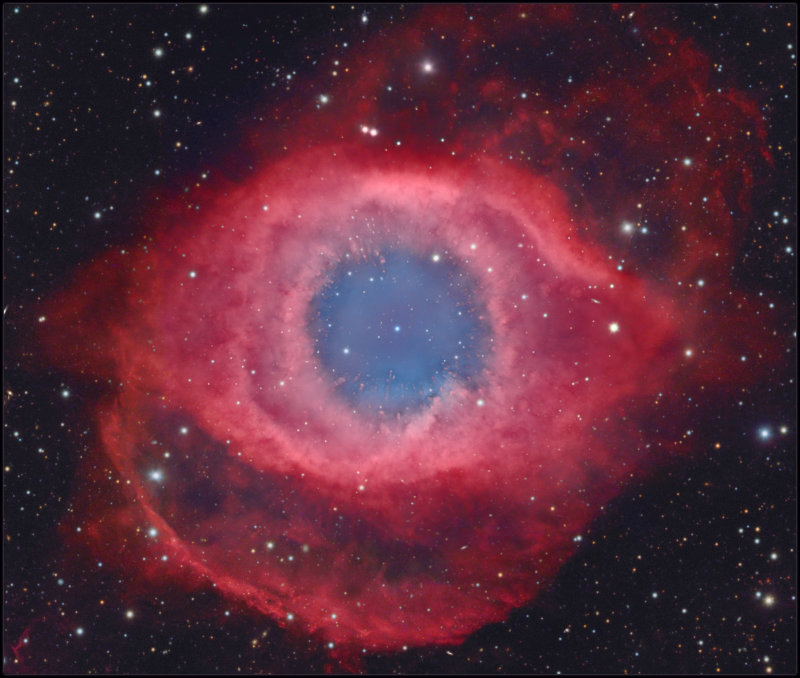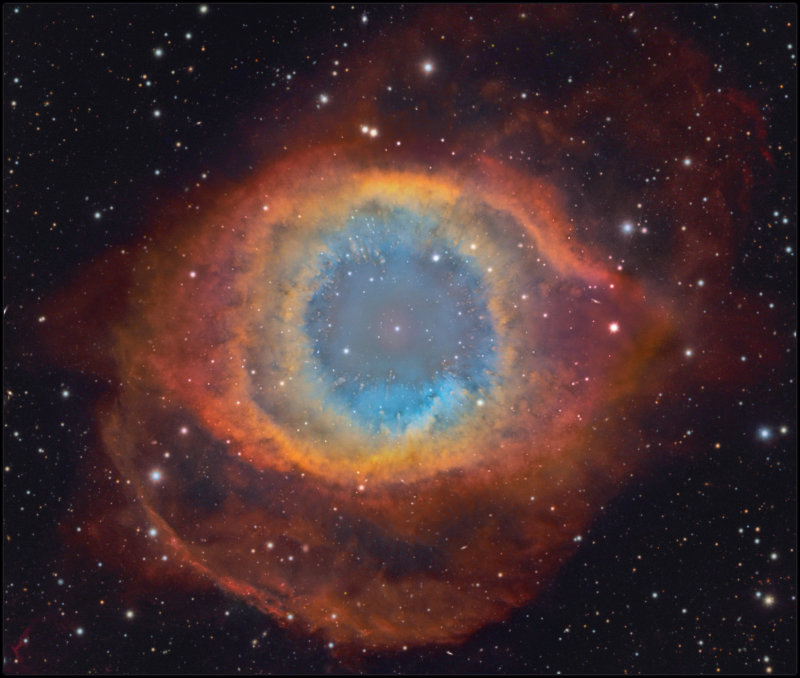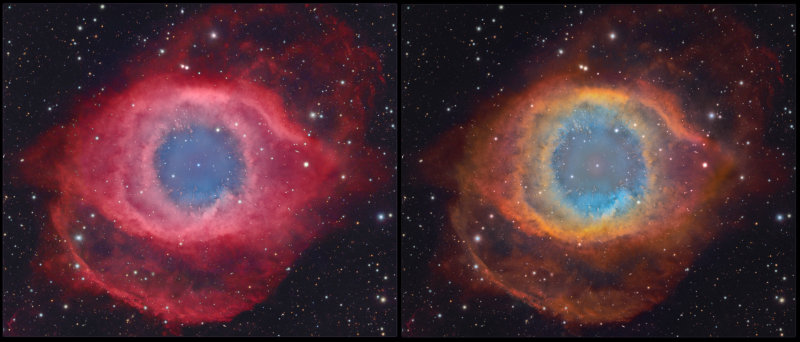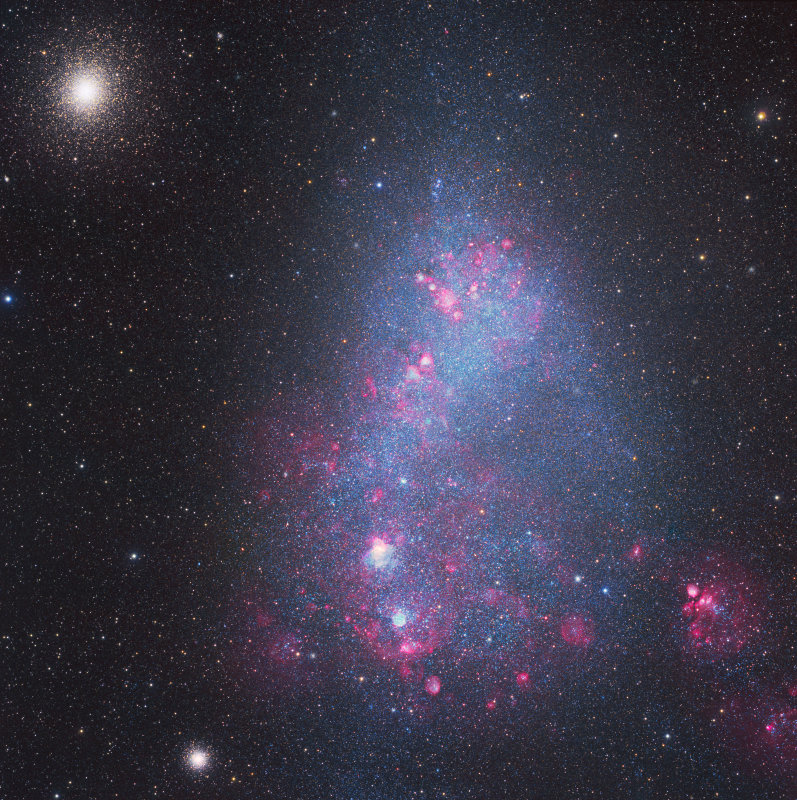California nebula Ced26/LBN756/NGC1499/PGC3517586/Sh2-220 (c-sho).
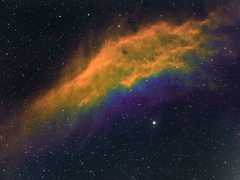
Also includes: Galaxies IC2005 and IC2027.
Total integration: 12.8 hours/770 minutes = 31x7m for S2 + 49x7m for Ha + 30x7m for O3.
Camera: QHY163M (16mp mono) CMOS cooled to -15 degrees C.
Telescope: Stellarvue SV70T triplet apochromat refractor @ f/4.8.
Reducer: SFFR70-APO
Mount: Paramount MyT.
Filters: Astrodon 5nm Ha, 3nm O3, 3nm S2.
Software: Sharpcap, PixInsight.
Inline image with reduced quality uploaded to forum. Full sized higher resolution image is here:
http://ram.org/images/space/scope/1.4.4 ... _12.8h.jpg
Ha only image:
https://www.astrobin.com/m4znjp/B/
Alternate version with more yellow instead of golden tones:
https://www.astrobin.com/m4znjp/C/
The nebula, so named due to its shape resembling the current borders of the state of California, lies at about a distance of ~1300 light years from Earth located in the constellation Perseus. Coincidentally, it transits with its zenith in central California, since the latitude matches its declination. Its width is just a bit under that of the diametre of the moon when viewed from Earth (~ half a degree), but its length however is 2.4 degrees, roughly five times that of the moon's apparent diametre.
The bright star close to the centre is Xi Persei aka Menkib which is primarily responsible for exciting the gases in the nebula and its resulting fluorescence, apparently due to ionising hydrogen beta radiation (which isn't one of the emission lines being measured by my filters, cf. the Balmer series).
The image as you see it consists mostly of Ha and S2 data. There is some O3 signal that is very faint but I did manage to pull it out. These images are minimally processed. I spent some time doing sophisticated processing but it went nowhere, whereas this is a simple linear combination of the three filters' light frames, followed by stretching and colour manipulation of the combined image in PixInsight to roughly match its namesake's colours (again, no Photoshop CC this time), and that's it!
Lurking in the background of the image are galaxies IC2005 and IC2027, which are magnitude 16 galaxies. The latter is visible at the top left if you look very closely. The former is in the top left quadrant, apparently behind the nebula.
As always, thanks for looking!
--Ram




